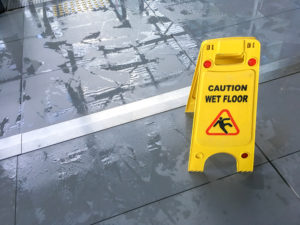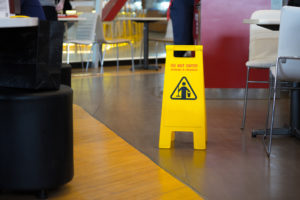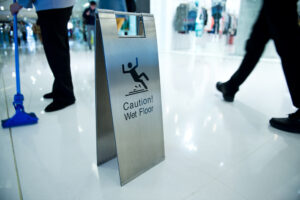
To win a Detroit premises liability lawsuit you need to prove the following elements: (1) your status on the property; (2) the owner’s “possession and control” of the property; (3) the existence of a hazardous condition; and (4) negligence, i.e., the property owner owed you a duty, this duty was breached, you incurred damages, and the breach was the cause of your damages.
The duty owed to you by a property owner depends on your “status” relative to the property. If you were an “invitee,” such as a customer in a store, the owner must keep you safe from dangers. If you were a “licensee,” such as a social guest, the property owner must warn you of any known dangers. And if you were a “trespasser,” the owner must only refrain from willfully and wantonly harming you.
If you were injured on someone else’s property, an experienced premises liability attorney who specializes exclusively in this area of law and has a track record of success can help you prove these items and get you maximum compensation for your pain and suffering, medical expenses, and lost wages.
What is a premises liability lawsuit?
A premises liability lawsuit is a legal claim asserting that an injury occurred on someone else’s property because the property owner failed to make the premises safe or inform others of any known dangers. To win a case you must prove specific elements. An experienced lawyer who understands these elements and knows how to prove them can help you file and win your case.
What are the elements of a premises liability case?
To win a premises liability case, you must prove the following premises liability elements:
- Your status – You must first establish that you were either an “invitee” (a person invited onto a property for the owner’s “commercial benefit”) or a “licensee (a person who was on the property with the owner’s permission, but not for the owner’s financial benefit) (M Civ JI 19.01)
- Possession & control – You must next show that the property owner had possession and control over the property (M Civ JI 19.02)
- Dangerous condition – You must then prove that a dangerous condition was present on the property
- Negligence – Finally, you must establish that the property owner was negligent
To establish that the property owner was negligent, you must prove the following
- Duty – The property owner owed you a legal duty of care (determined by your status on the property)
- Breach – The property owner breached this duty by failing to make the property safe or by failing to warn you about hidden or unknown hazards
- Causation – The property owner’s breach of his or her duty caused your injuries
- Damages – You incurred actual damages, such as medical costs, lost wages, and pain and suffering
How do I know what type of duty a property owner owes me?
The duty of care owed to you by a property owner depends on your “status” relative to the property. There are three potential statuses (M Civ JI 19.01):
- Invitee – If you were on the property for the property owner’s “commercial benefit” or for “business dealings,” you are an invitee and the property owner owes you “a duty to exercise reasonable care to protect [you] from an unreasonable risk of harm caused by a dangerous condition of the land that was known to the possessor or that should have been known to the possessor in the exercise of ordinary care.” (M Civ JI 19.03). The most common example of an invitee is a customer in a store or restaurant.
- Licensee – If you were on the property “for any purpose other than a business or commercial one” and “with the express or implied permission” of the property owner, you are a licensee and the property owner owes you a duty only to warn you of any hidden danger the owner knows or should know about. (M Civ JI 19.06). The most common example of a licensee is a social guest in a private home.
- Trespasser – If you were on the property without the owner’s permission you will be considered a trespasser, in which case the property owner owes you no duty other than to refrain from causing you harm through “willful and wanton” misconduct.
What should I do if I was hurt on someone’s property?
If you were injured on someone else’s property, there are several key steps you should take, including:
- Pinpoint the location and cause of your injury – You must be able identify where and how the accident happened
- Document the scene – If possible, take photos and videos and get contact information for any witnesses
- File an incident report right away – It’s important to create a paper trail showing when, where, and how the injury took place
- Fulfill all notice requirements – You must meet specific notice requirements
- Understand that the owner will try to blame you for the accident – Property owners and their insurance companies rarely accept blame for their negligence and don’t want to pay
- Be ready to explain why you didn’t notice the hazard – Why would a “reasonable person” in your position not have noticed the hazard and been able to avoid it?
How can a lawyer help me prove these elements and win my case?
Hiring an experienced personal injury attorney who specializes exclusively in this area of law will significantly increase the value of your claim and help you get maximum compensation quickly. A dedicated premises liability attorney will thoroughly investigate your case, preserve critical evidence, and handle all negotiations with insurance companies. This allows you to focus on your recovery while your attorney builds a strong case. An experienced Michigan premises liability attorney understands the elements of these cases and how to prove each of them. A skilled lawyer is also prepared to take your case to trial if needed to secure the full compensation you deserve. Insurance industry research supports hiring the best lawyer you can find, showing that victims with specialized attorneys often receive settlements up to four times higher and resolve their cases more efficiently. Importantly, there’s no financial risk in hiring a top attorney as consultations are free, and you pay nothing unless your lawyer wins your case.

Named a “Leader in the Law” and “Lawyer of the Year” by Michigan’s largest legal newspaper for his record-breaking auto accident verdicts, settlements and advocacy work in preventing wrecks, Steven Gursten heads Michigan Auto Law—a firm dedicated to serious motor vehicle accident injury cases and wrongful death lawsuits.










